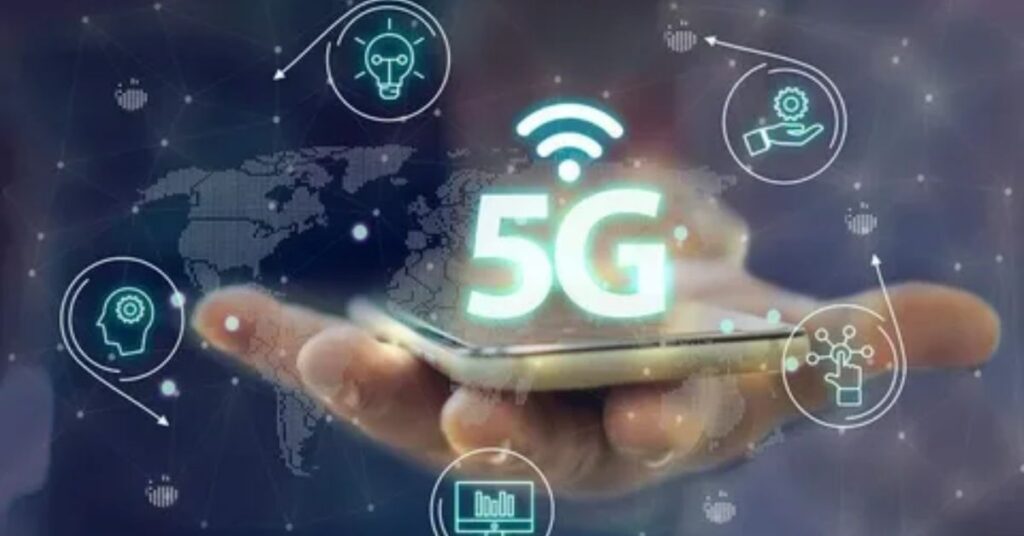5G technology is the next big thing in mobile networks. It promises faster speeds, better connectivity, and new opportunities across industries. But what exactly is 5G, and why does it matter so much ? In this guide, we’ll dive into the key features and advantages of 5G technology, how it works, its applications, and its future impact on both businesses and everyday life.
What is 5G and Why Does it Matter?
5G technology is the fifth generation of mobile networks, following 4G. It offers faster speeds, lower latency, and more reliable connections than its predecessor. The importance of 5G goes beyond just faster browsing or streaming; it opens up a world of possibilities for industries like healthcare, manufacturing, and transportation.
5G matters because it supports massive machine-type communication (mMTC), allowing thousands of devices to connect at once. This is crucial for smart cities, where devices and sensors work together to improve urban living. It also supports low latency and ultra-reliable low latency communications (URLLC), enabling real-time applications like self-driving cars and remote surgeries.
You May Also Read this Blog What Is a Growth Mindset and How to Develop It Effectively
How 5G Works
The core of 5G technology is its use of higher-frequency high-band mmWave spectrum, which enables ultra-fast data transfer. 5G also uses network slicing, a technique that divides the network into customized sections, offering tailored speeds and reliability for different needs.
5G’s improved architecture includes edge computing, which reduces the time data takes to travel. By processing data closer to where it’s needed, 5G can support applications like real-time collaboration and remote patient monitoring. This makes 5G more efficient and responsive than previous networks.
Key Features of 5G Technology
One of the most exciting features of 5G is its enhanced mobile broadband (eMBB) capabilities. It can deliver much higher speeds than 4G, enabling faster downloads and smoother streaming. But it’s not just about speed. 5G also offers massive machine-type communication (mMTC), which connects millions of devices, making the Internet of Things (IoT) even more powerful.
Another major feature is the low latency of 5G. This means less delay between sending and receiving data, which is critical for applications like autonomous vehicles and mission-critical applications. Whether it’s for real-time data transfer or gaming, 5G ensures quick, reliable connections that keep things running smoothly.
Key Advantages of 5G Over 4
Compared to 4G, 5G offers several key advantages. 5G speeds are much faster, which means data-intensive applications like 4K video streaming, augmented reality (AR), and virtual reality (VR) will run smoothly. It also reduces latency, making real-time communication possible in ways that were not feasible with 4G.
Another advantage is the increased capacity. 5G can handle many more devices connected simultaneously, which is important for areas like smart cities and connected vehicles. With 5G, massive machine-type communication (mMTC) can support millions of IoT devices without causing congestion or delays.
5G Use Cases and Applications
5G has many practical applications that will change the way we live and work. In smart cities, 5G supports everything from smart infrastructure to environmental monitoring and traffic management. 5G also enhances precision agriculture, allowing farmers to use real-time data from IoT sensors to optimize crop production.
In healthcare, 5G enables remote patient monitoring and improves telemedicine. With healthcare IoT sensors, doctors can track patient vitals in real time, even from afar. 5G will also power autonomous vehicles, allowing cars to communicate with each other and their environment, making transportation safer and more efficient.
Future of 5G Technology

The future of 5G is incredibly bright. As the network continues to roll out, we’ll see private 5G networks tailored to specific businesses, industries, and even homes. These networks will be more secure, faster, and better suited to their users’ needs.
5G is also a key enabler of Industry 4.0, which includes the automation of manufacturing, supply chains, and other industries. By enabling faster data transfer and edge slicing, 5G allows for real-time decision-making and monitoring, making industries more efficient than ever before.
Common Questions About 5G
People often ask, “What are the benefits of 5G technology?” The most significant benefits include faster internet speeds, lower latency, and the ability to connect many more devices. These benefits will support everything from autonomous vehicles to remote patient monitoring and precision agriculture.
Another common question is about 5G safety. Some people worry about the health effects of 5G due to the higher frequencies it uses. However, 5G technology complies with global safety standards, and there is currently no evidence to suggest that 5G is harmful to human health.
Business Benefits of 5G
For businesses, 5G offers tremendous opportunities. 5G enables low latency communication and faster data transfer, improving productivity and customer experiences. With network slicing, companies can create private networks that are more secure and reliable.
5G also supports mission-critical applications that rely on real-time data, such as autonomous vehicles and smart factory operations. By adopting 5G technology, businesses can enhance their operations, reduce costs, and stay ahead of competitors in an increasingly connected world.
Drawbacks of 5G
While 5G offers many benefits, there are some drawbacks to consider. The initial rollout of 5G can be expensive, requiring infrastructure upgrades and new equipment. Additionally, 5G coverage is still limited, especially in rural areas, so access to 5G may be slower to arrive in some parts of the country.
Another challenge is that the higher-frequency mmWave used in 5G has shorter range, which means more towers are needed to provide complete coverage. Despite these challenges, the potential benefits of 5G technology far outweigh the drawbacks, especially as the network continues to expa
FAQ’s
What are the advantages of 5G technology?
5G offers faster data speeds, lower latency, and greater capacity, enabling more connected devices and improved performance for applications like IoT and autonomous vehicles.
Who benefits most from 5G?
Industries such as healthcare, automotive, entertainment, and manufacturing will benefit most from 5G, with enhanced connectivity and innovation opportunities.
What are the benefits of 5G Advanced?
5G Advanced promises improved network efficiency, faster speeds, and enhanced AI integration, further expanding the capabilities of applications like smart cities and industrial 5automation.
How is 5G important?
5G is important because it enables ultra-fast communication, supports emerging technologies, and provides the infrastructure needed for innovations like autonomous driving and IoT.
How will 5G affect society?
5G will revolutionize communication, improve healthcare, enable smart cities, and drive economic growth by supporting new technologies and services across various sectors.
Conclusion,
Informed and adapting to changing trends is crucial for achieving success in any field. By continuously enhancing our skills and embracing new opportunities, we can position ourselves for growth and long-term achievement. Whether it’s in the business world or personal development, proactive strategies and a commitment to improvement are key factors that drive progress.
The journey to success is shaped by the choices we make today. We can overcome challenges and create a fulfilling path forward with dedication, adaptability, and a clear vision. It’s essential to remain focused on goals and stay motivated, as consistency and persistence lead to sustainable success.







